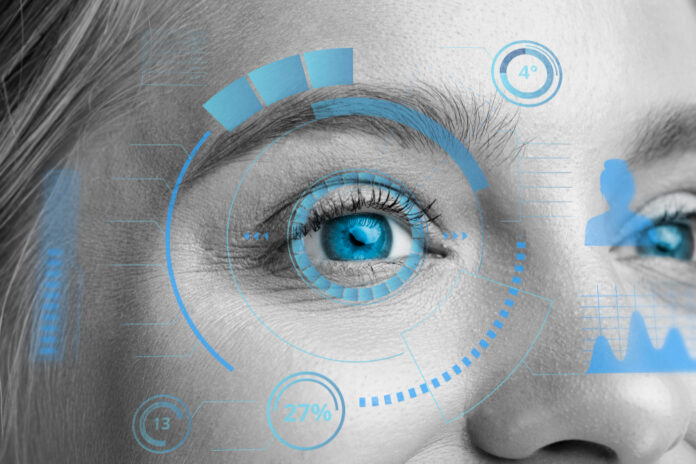In today’s hyper-competitive business environment, the strategic incorporation of technology in human resources (HR) not only sets companies apart but also defines their ability to attract, retain, and develop top talent. One of the most transformative technologies in this space is Artificial Intelligence (AI), particularly in how it enhances talent acquisition strategies.
The Challenge of Talent Acquisition in AI and HR
Every HR professional knows that the process of talent acquisition is not just about filling vacancies. It’s about finding the right person, with the right skills, at the right time—which is easier said than done.
The traditional methods of recruitment are often cumbersome, time-consuming, and subject to human bias. Moreover, in industries where precision and compliance are paramount, the stakes are even higher.
The AI Revolution in HR
AI transforms the landscape of talent acquisition through sophisticated algorithms and machine learning techniques that automate and optimize many of the processes traditionally done by humans. Here’s how AI is making a difference:
Automated Screening and Matching
- CV Parsing: AI tools quickly scan and extract information from resumes, ensuring that recruiters no longer need to manually sift through piles of CVs.
- Candidate Matching: Advanced algorithms compare candidate profiles with job descriptions, highlighting the best fits and significantly reducing the time to hire.
Predictive Analytics
- Forecasting Trends: AI can predict hiring needs based on company growth patterns and market conditions, allowing proactive recruitment.
- Candidate Success Prediction: By analyzing past hiring data, AI predicts which candidates are likely to succeed in a role, thereby improving the quality of hire.
Enhanced Candidate Experience
- Chatbots: AI-powered chatbots provide real-time interactions with candidates, answering their queries and keeping them engaged throughout the selection process.
- Personalized Recommendations: Candidates receive job recommendations based on their skills and preferences, improving the application experience.
AI in HR – Before and After
| Feature | Before AI | After AI |
| Time to Hire | Weeks to months | Days to weeks |
| Quality of Hire | Variable, often unpredictable | Consistently high, with predictive input |
| Candidate Experience | Often frustrating, impersonal | Engaging, personalized |
| Operational Cost | High due to manual processes | Reduced significantly |
The Impact on HR
With the rise of human resources software in India, companies are now equipped to handle large volumes of applicant data and streamline their hiring processes efficiently. This software, powered by AI, manages multiple facets of HR from recruitment to onboarding, ensuring a seamless integration of new hires into the organizational fabric.
(Image by Freepik)
Practical Insights: Real-World Applications
Several leading companies have transformed their HR operations with AI. Here’s a look at how AI is applied in real scenarios:
- Automated Interview Scheduling: Tools like HireVue and Mya Systems automate the scheduling of interviews by coordinating the availability of candidates and interviewers without human intervention. This technology ensures efficiency and minimizes scheduling conflicts.
- Bias-Free Recruitment: AI-driven platforms such as Pymetrics and Blendoor use algorithms that help reduce unconscious bias by anonymizing non-performance related information such as name, age, and gender. This promotes a more diverse and inclusive workplace.
- Skills-Based Hiring: Companies like IBM are increasingly focusing on skills rather than academic credentials alone, utilizing AI to assess skills through games and tasks. This approach allows firms to tap into a broader talent pool, prioritizing capabilities over degrees.
- Enhanced Onboarding Experience: AI-powered onboarding applications help new hires integrate more smoothly into their roles. These systems provide personalized learning paths and necessary resources, ensuring new employees feel supported and valued from day one.
- Employee Engagement Monitoring: Tools like Peakon and Leapsome use AI to analyze employee feedback in real-time, allowing HR departments to gauge engagement and satisfaction continuously and address issues proactively.
- Predictive Attrition Tools: AI can predict potential employee turnovers by analyzing patterns and variables such as job performance, team interactions, and employee sentiment. Companies like IBM use these insights to take preemptive actions to retain top talent.
- Customized Learning and Development: AI-driven platforms such as Coursera for Business use machine learning to recommend personalized learning courses to employees based on their career trajectories and past learning behaviors. This customization helps in aligning personal development with organizational goals.
The Future Path
As AI continues to evolve, its capabilities in the HR sector are only expected to grow, leading to more nuanced and sophisticated talent management strategies.
The future might see AI not only in recruiting but also in managing employee life cycles, predicting turnovers, and personalizing employee learning and development.
Conclusion
The incorporation of AI into HR practices, especially through the use of human resources software, is not just a trend but a transformation. It promises a future where talent acquisition is not just efficient but also equitable and forward-thinking. As we stand on this technological brink, the question isn’t whether AI will redefine HR, but how quickly we can adapt to this inevitable change.
Embracing AI in HR doesn’t just optimize processes—it reinvents them. For HR professionals across the globe, it’s time to look forward, think smarter, and act faster. After all, in the race for talent, those equipped with the best tools will lead the pack.















